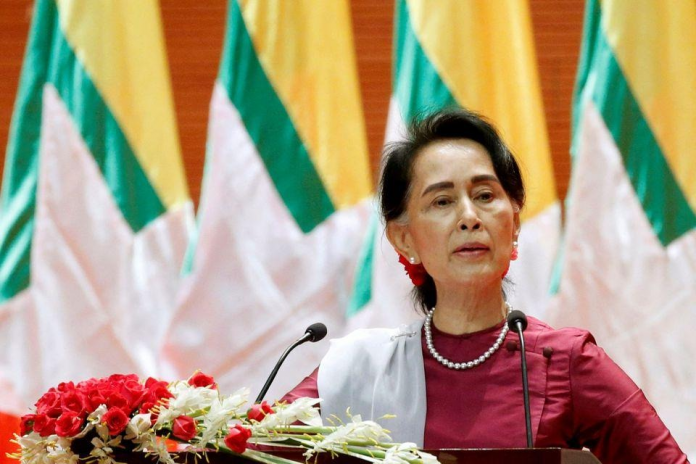Guest contributor
James Shwe
For over seven decades, Myanmar has been under the control of a military regime that has skillfully employed the divide and conquer strategy to maintain its grip on power. By exploiting ethnic, religious, and socio-economic differences, the military has successfully weakened potential opposition and extended its rule. To build a united and democratic Myanmar, we must recognize these tactics, bridge divisions, and nurture solidarity among the people.
Myanmar’s diverse ethnic makeup has been a prime target for the military’s strategy. By leveraging resource competition and historical resentments, the military perpetuates a cycle of animosity among different groups, weakening the potential for united opposition. The military has also used its control over key economic sectors to benefit certain ethnic groups, further deepening divisions and resentments. Even humanitarian aid is used as a weapon of coercion and division. U.N. aid is blocked from the areas of ethnic resistance. The same with international assistance in vaccinations.
This exploitation of ethnic differences has served as a cornerstone of their power consolidation. The diverse armed ethnic uprisings are their justification for their existence, especially in the eyes of the international community. This fear of Balkanization and anarchy applied through the clever use of professional lobbyists and international media has successfully deterred international assistance to the resistance.
Religion has also been weaponized by the military. The majority Buddhist population has been targeted by the military’s propaganda machinery, stoking nationalist sentiments to create a sense of unity against perceived external threats. It is well established that the military supports ultra-nationalist monks who promote hate speech, creating inter-religious tensions and diverting attention from military oppression. The Rohingya crisis showcases the military’s adept manipulation of religious divides. The military’s manipulation extends beyond Rohingya Muslims. The split in the Karen resistance between the Christian KNU and Buddhist DKBA is also a good example of the military’s expertise in using religion to divide.
The military also managed to exploit the Rohingya crisis for their benefit. By presenting the civilian government’s handling of the crisis as weak while downplaying its lack of control, the credibility of Myanmar’s civilian National League for Democracy (NLD) government was undermined and aspersions of complicity were cast. The people of Myanmar were also portrayed to the world as ultra-nationalist religious extremists. This narrative eroded international public sympathy and support for both the civilian government and the people of Myanmar.
Recognizing the military’s exploitation of the Rohingya crisis is essential for forging a unified opposition against military rule in Myanmar. International Rohingya activists, while their intentions are to draw attention to the dire situation faced by the Rohingya population, as they should and must, also should take care not dilute the unified resistance against military rule and unintentionally assist the military’s strategy to limit international assistance to the resistance.
Socio-economic disparities also provide fertile ground for the military’s manipulation. Their control over key economic sectors enables them to perpetuate inequality, deepening societal rifts. Moreover, the military utilizes economic control to reward supporters and penalize opponents, further fragmenting the population along socio-economic lines.
In a bid to undermine opposition efforts, the military seeks to sow discord within the resistance movement itself. By fostering intergroup rivalries, exploiting ideological differences, and spreading mistrust, the military aims to weaken the collective strength of those who stand against them.
A good example at present is the way they are trying to take advantage of the ideological differences among the NLD members, between those who support the spring revolution and those who prefer a negotiated resolution, by using Aung San Suu Kyi as a trump card and claiming without proof that she prefers a negotiated solution. They even managed to divide ASEAN and take advantage of the situation though it is no surprise as all the countries who are on the military’s side are authoritarian.
The military has also attempted to infiltrate the resistance movement, either by placing agents within the movement or co-opting individuals sympathetic to the cause. These agents can manipulate decision-making processes, spread misinformation from within, or even sabotage the movement’s activities.
The military is using the relative technological weakness of the older generation and their more traditional thinking as reasons to undermine the older generation’s knowledge base. The younger generations are influenced to see the older generation as not progressive. This strategy ensures that the knowledge and momentum of resistance is not easily transferred across generations, preventing a unified resistance.
Disinformation campaigns have been a favored tool for the military to manipulate public opinion and sow doubt within the resistance movement. By disseminating false narratives and rumors, the military seeks to undermine trust among resistance members and erode their confidence in their shared goals.
Online celebrity arguments often play directly into the military’s strategy. Even though truly desirable natures of democracy are transparency and for people to agree to disagree civilly, influencers should be mindful that exposing differences of opinion within the resistance in a belligerent and divisive manner is not beneficial or exemplary to the public.
So far, despite enormous obstacles, historical grievances, and efforts to divide them, resistance groups have been relatively resilient, determined, and united in their efforts to overthrow Myanmar’s heinous military regime. We should recognize the National Unity Government (NUG) contributions. However, the international community and the resistance itself must remain vigilant and increase their awareness of the military’s wide variety of dirty tricks in order for the “Spring Revolution” to prevail and proceed towards the even more challenging subsequent stage of building a genuine federal democracy.
James Shwe is a Burmese-American living in the U.S. He has actively championed Burma’s democracy movement following the 2021 military coup. He advocates on behalf of both the U.S. government and Burma’s National Unity Government (NUG).
DVB publishes a diversity of opinions that does not reflect DVB editorial policy. We’d like to hear what you think about this or any of our stories: [email protected]



